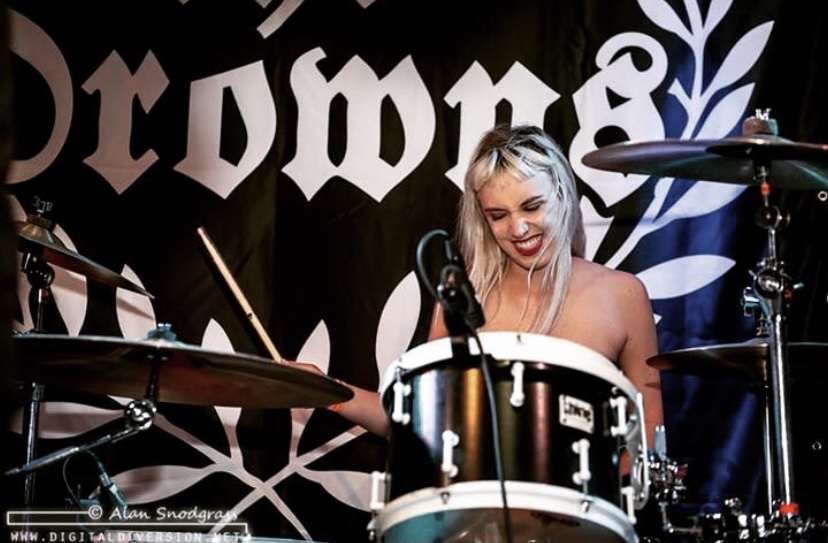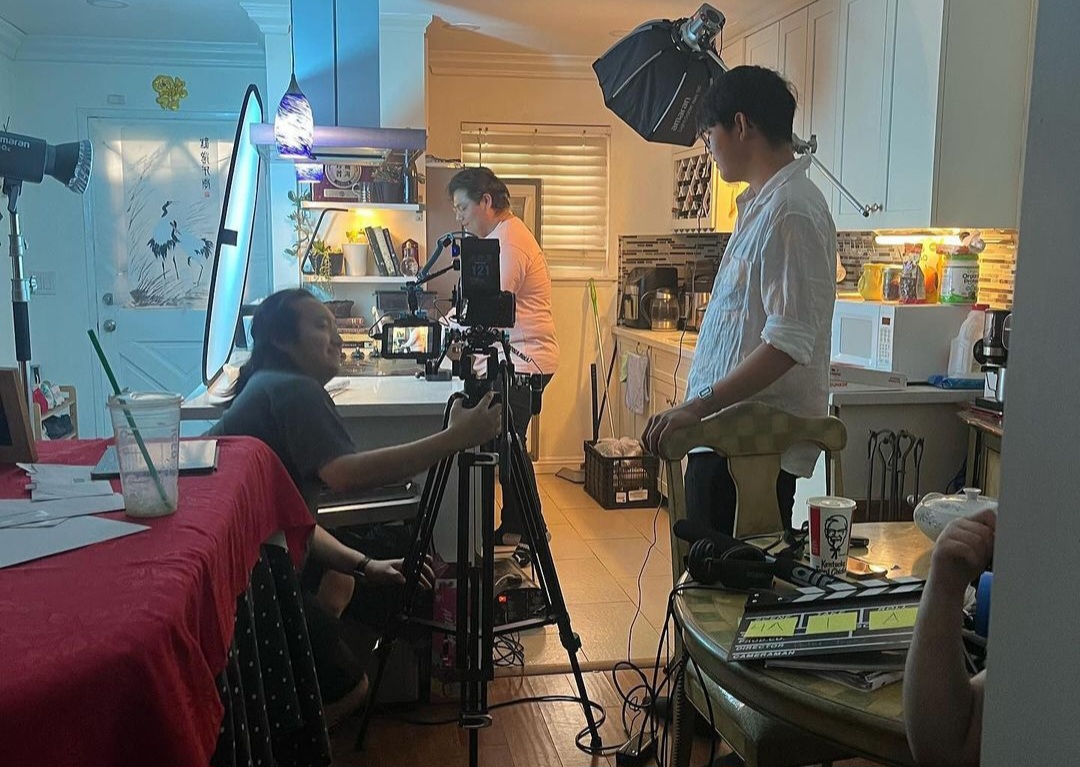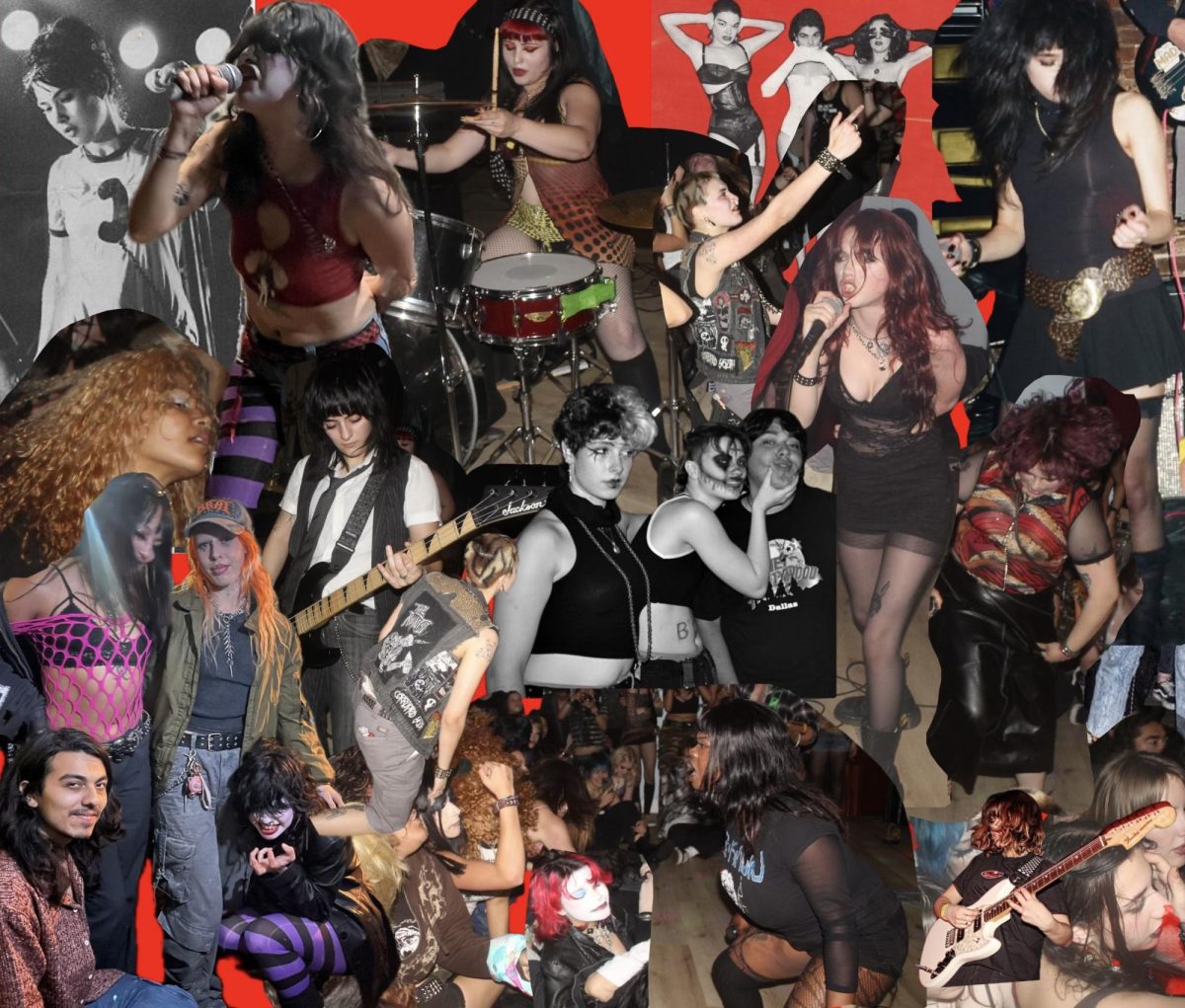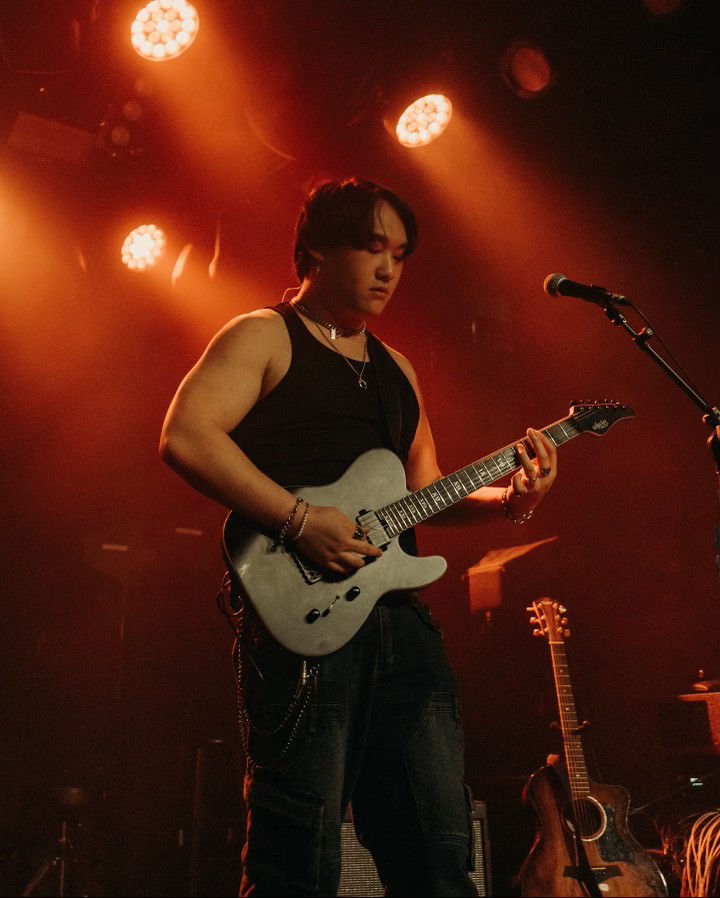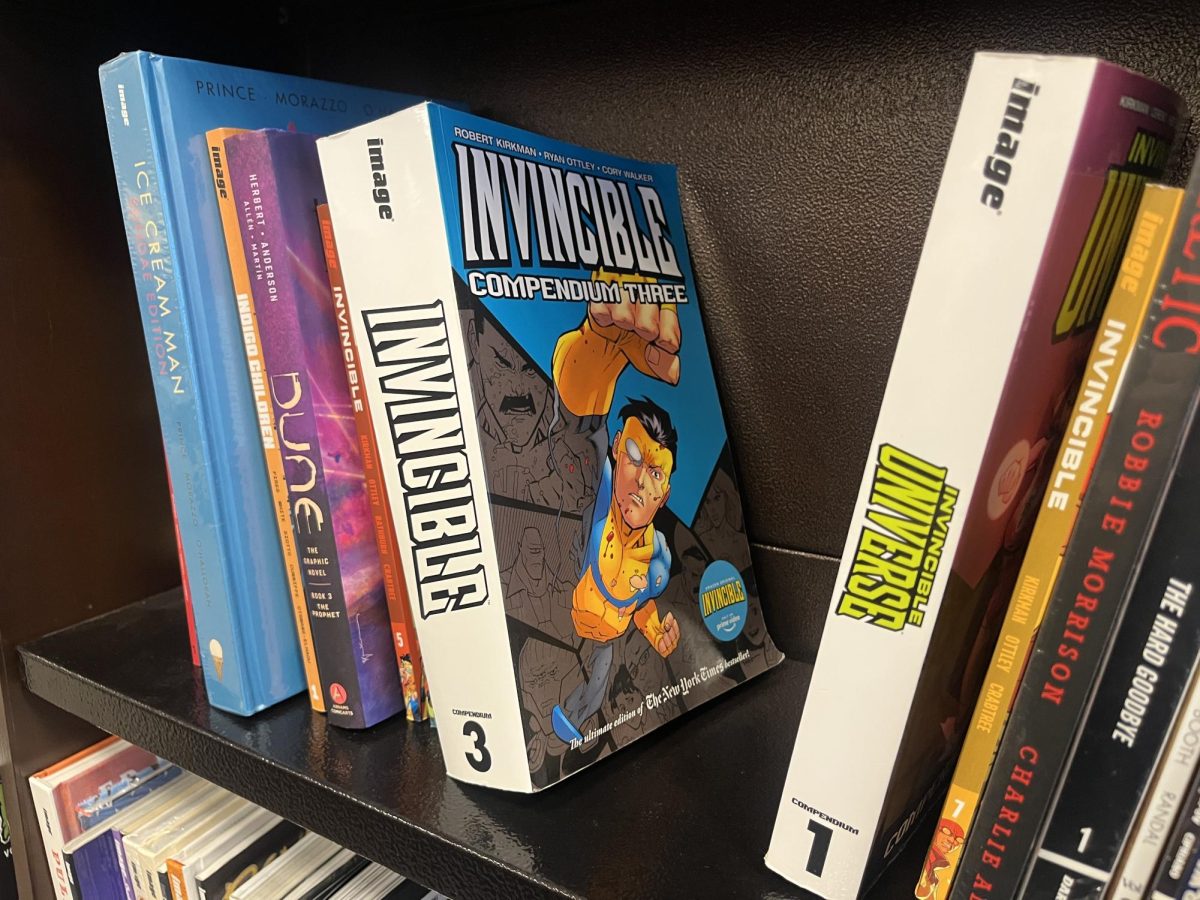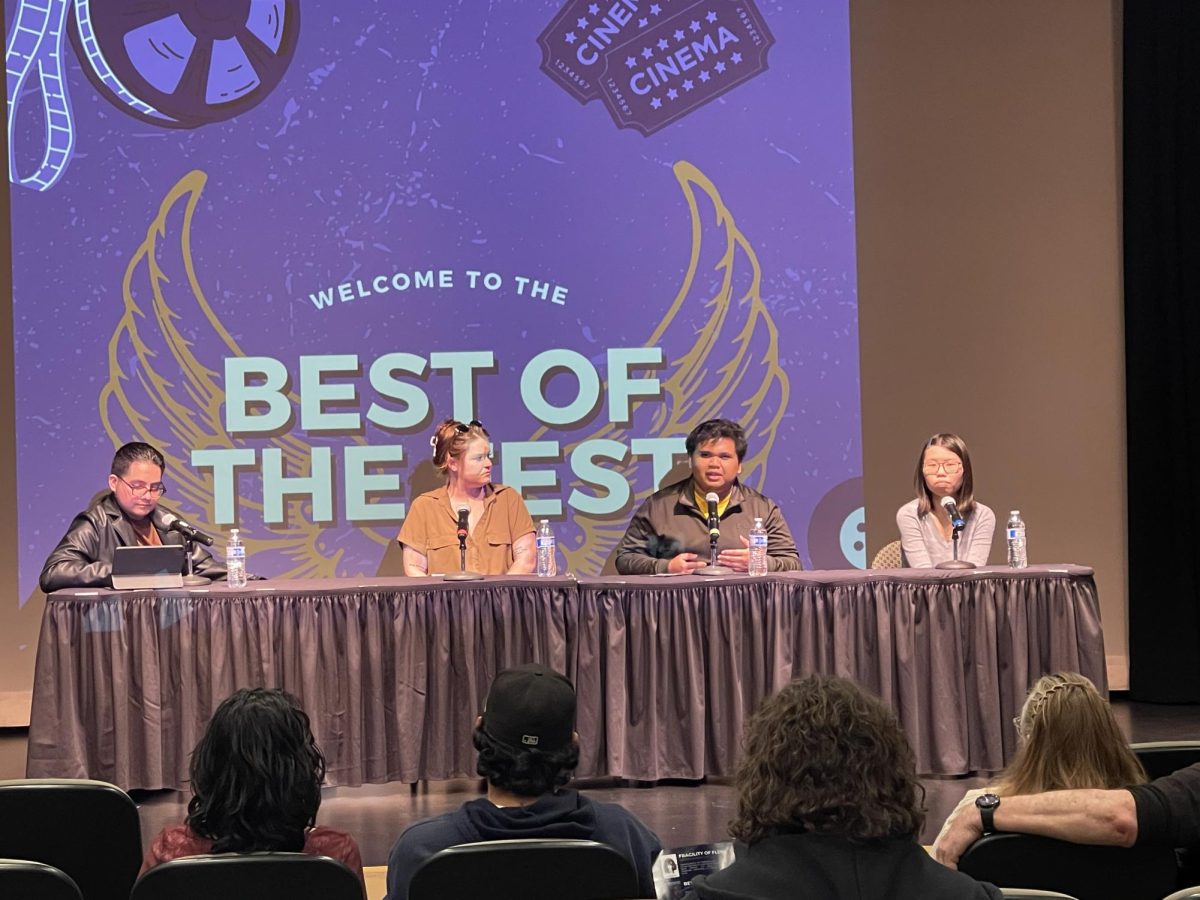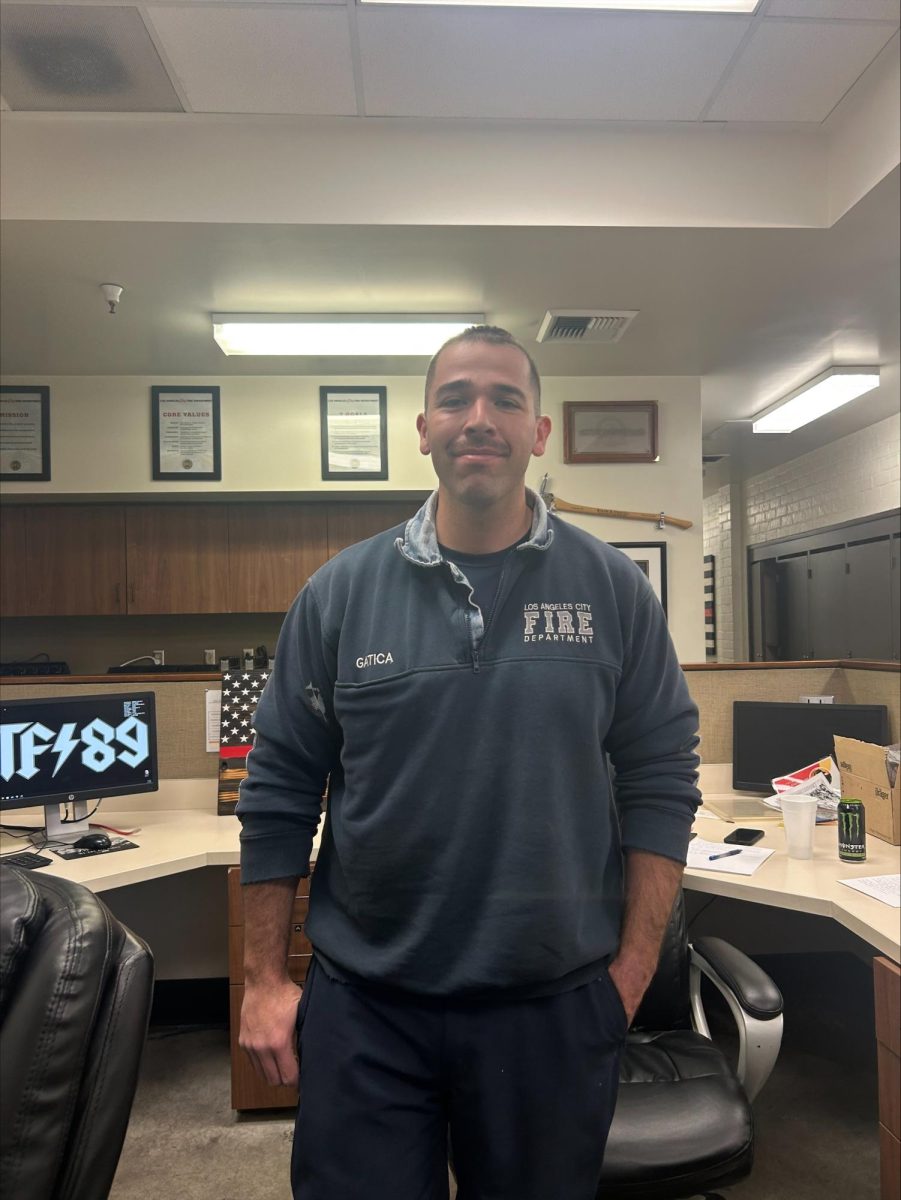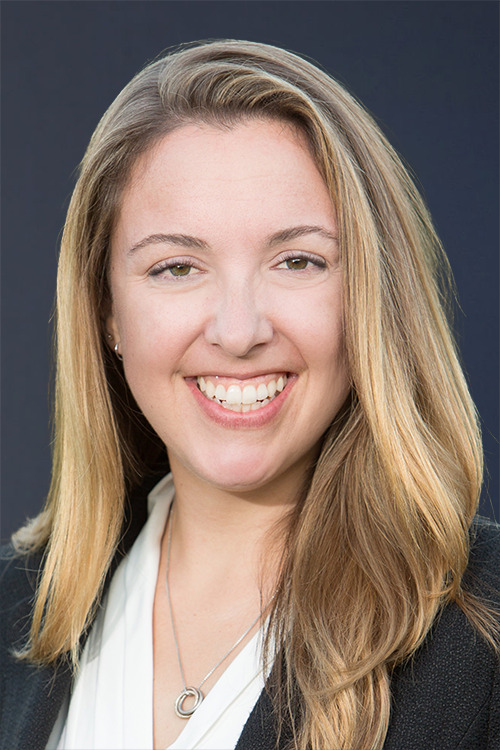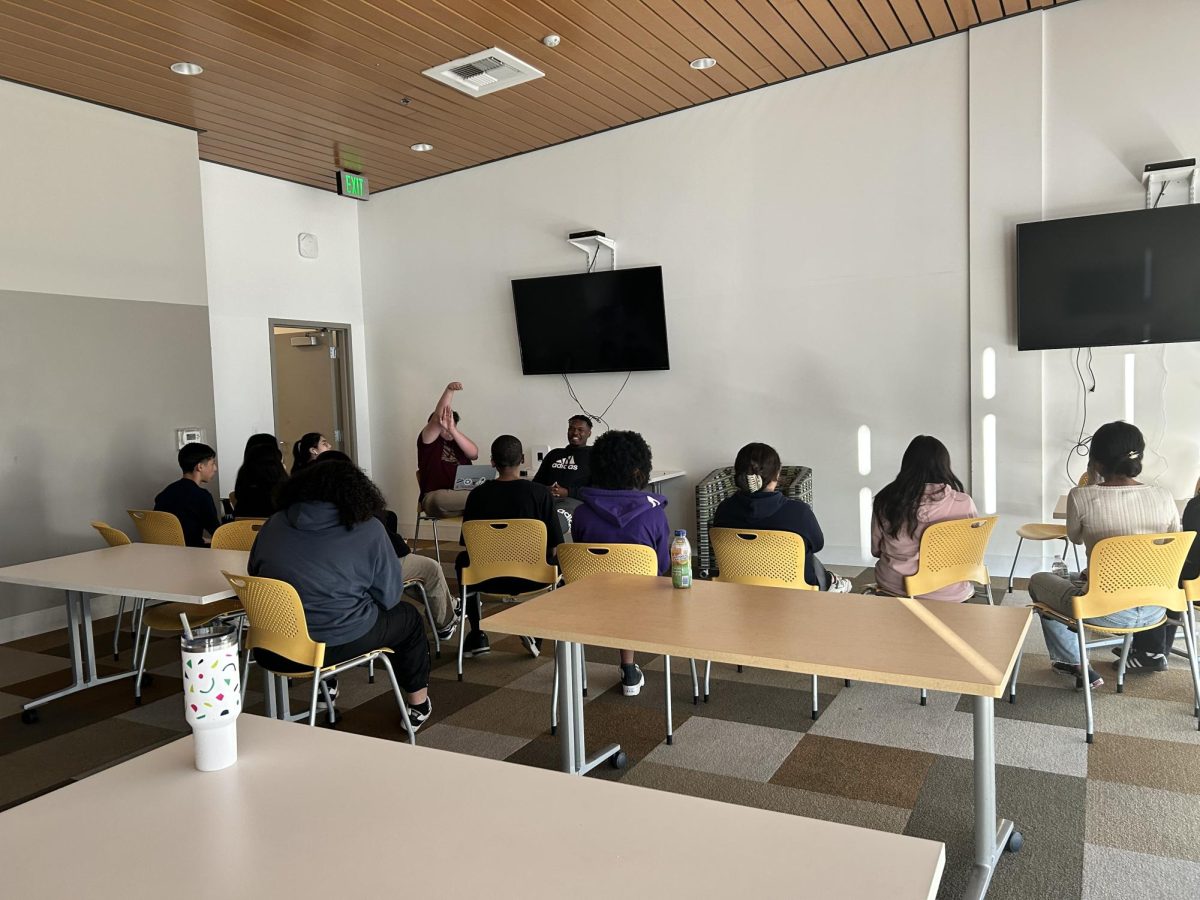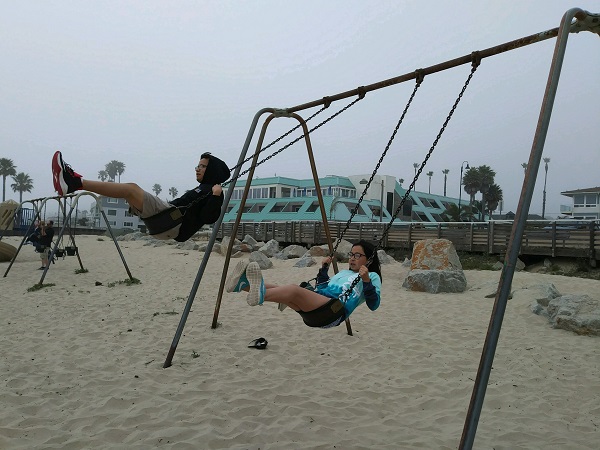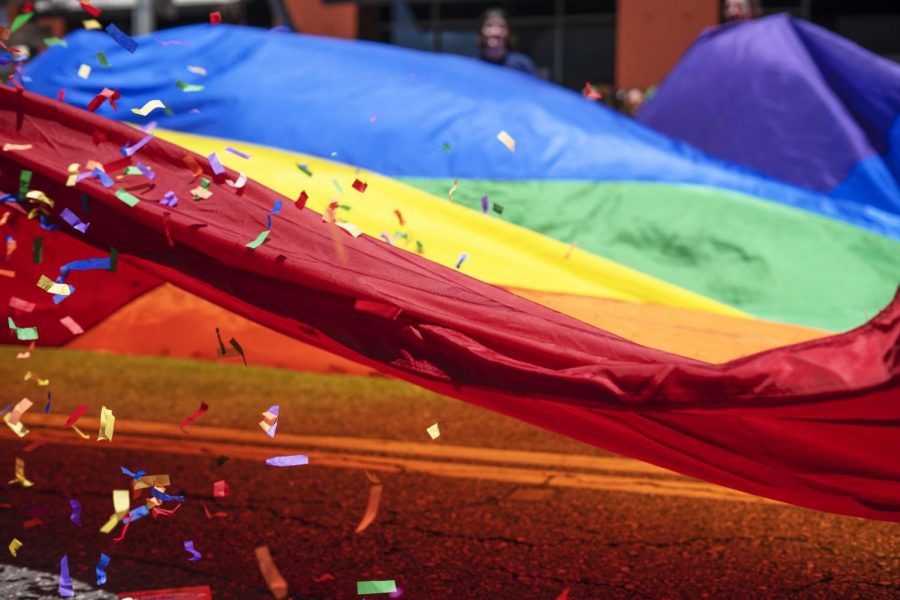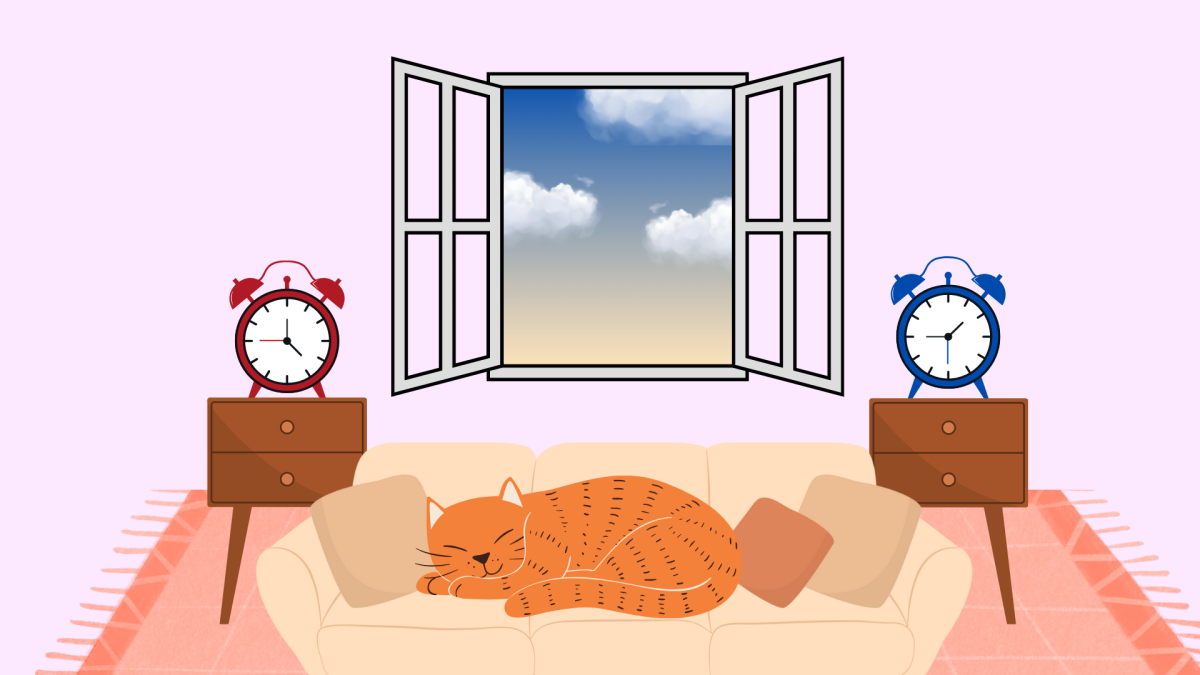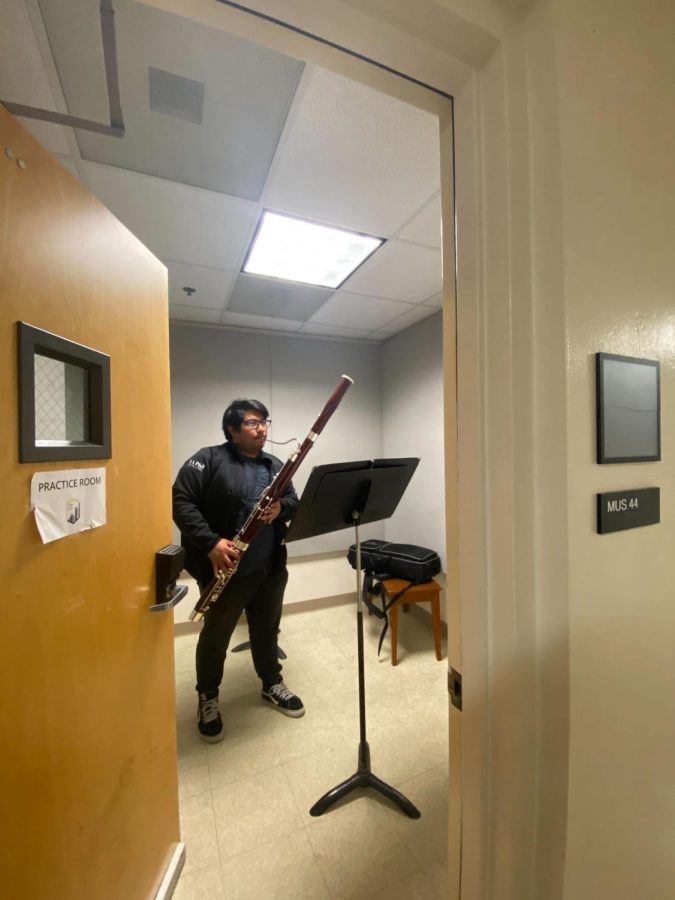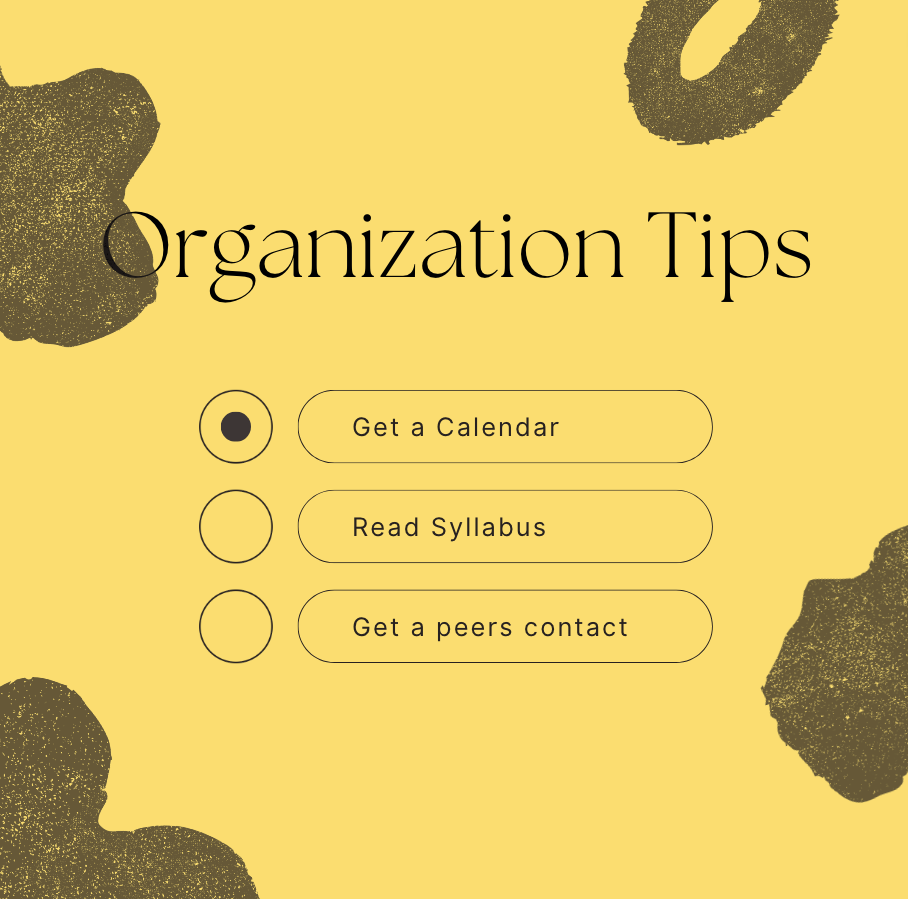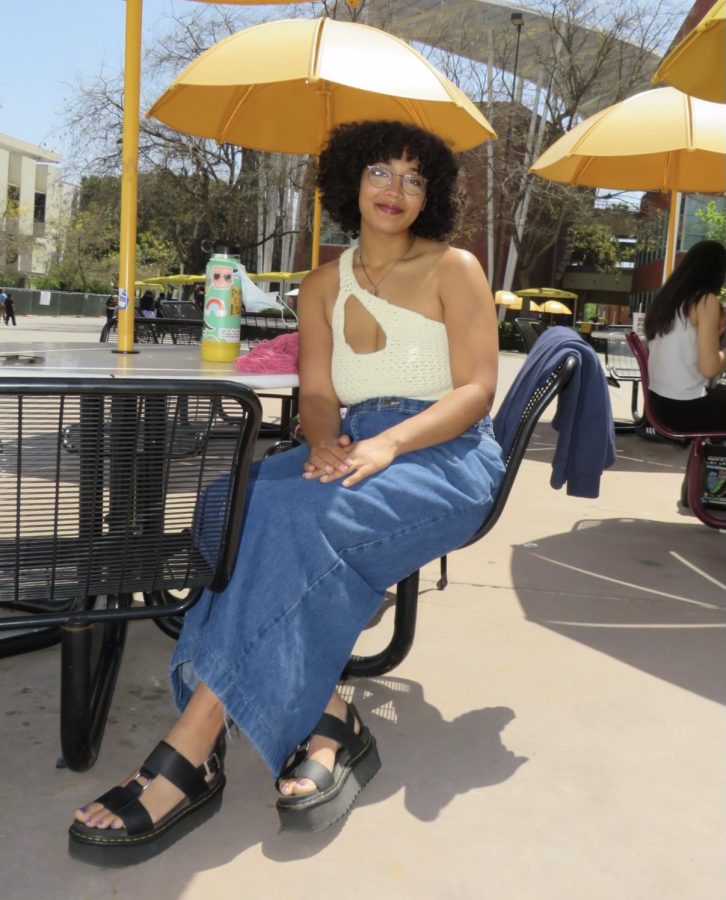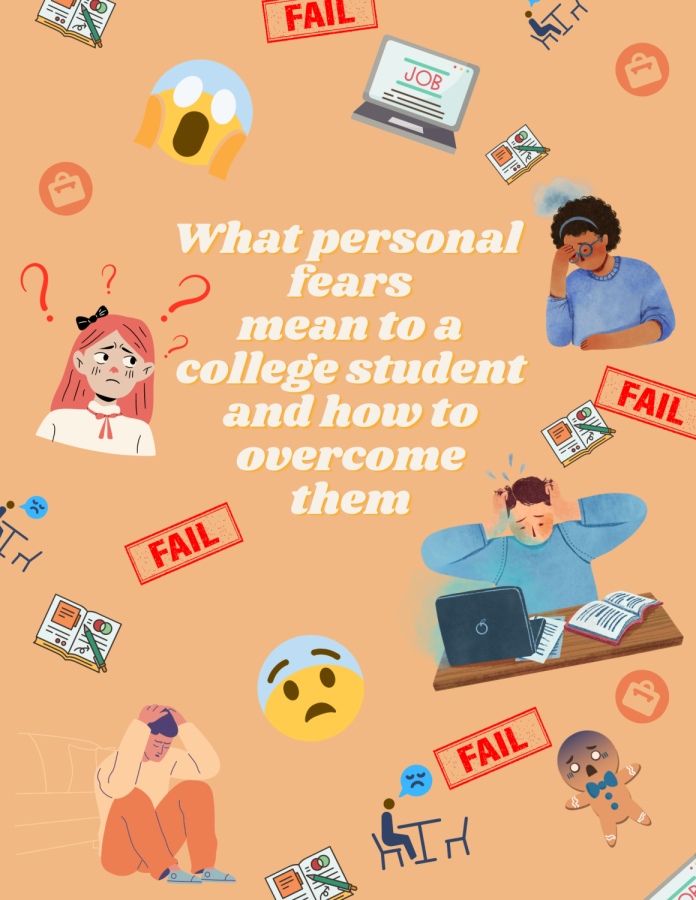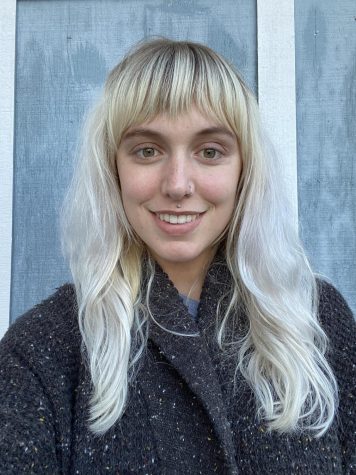“Sweetheart, could you transfer me over to a guy? I’d like to speak to someone who knows what they’re talking about.”
I had heard versions of that a number of times before working at the Guitar Center in Pasadena. But it usually wasn’t so blunt and like always, it hurt.
I hung up the phone, and ran to the employee restroom to have a good cry.
Doubts came flooding back. Will I ever be good enough? Maybe I really don’t have the skills and knowledge needed to succeed in a music career. Why don’t people see me as cool and tough as the guys?
I had grown up with music. My parents signed me up for piano lessons at the age 5 and I tried other instruments over the years. Nothing really stuck.
When I was 14, I played viola at an event with other young musicians and a boy playing the drums caught my attention. It wasn’t him that I was interested in, though, it was the drums. The sound was rhythmic, almost hypnotic.
I also thought, “If he could do it, I could, too.”
I began obsessively asking my mom to sign me up for drum lessons. She thought I was crazy at first. It’s not the typical wish of most 14-year-olds, especially girls. You could say I took the phrase, “marching to the beat of one’s own drum,” literally.
Finally, my mom caved in and signed me up for lessons. I was in love as soon as my stick hit the insanely loud snare drum for the first time.
I played as much as I could. My parents bought me the cheapest kit they could find, and I would set up shop in our garage for hours on end.
I joined my first “real” band when I was 17. It was me and a couple of guys in their early 20s. I didn’t think anything of this. We were just friends hanging out and playing music.
We started booking gigs at small venues around Los Angeles. It was at these shows where I first started to notice the general astonishment people exhibited watching me play the drums.
I would get comments like, “I haven’t seen a girl drummer before,” “I didn’t realize girls could play like that,” and, “That was really impressive for a girl.”
I started to pick up on the fact that I was doing something unique. And for a little while, I honestly enjoyed that.
I decided to start my own YouTube channel where I posted regular cover videos. I would do my makeup and wear a cute top just to be the complete opposite of what everyone envisions a drummer to be.
Enough of the masculine male drummer. I’ll be a feminine female drummer.
Almost immediately, the comments made me feel like a piece of meat. I recently went back and looked at a few of my old videos, and the number one comment on each one seems to be “marry me.”
I started to believe that my own sexuality was so deeply tied to my identity as a musician that I would never be viewed strictly as a good drummer. I will always be a good female drummer.
After that, I went on to play with many more bands and lived all across California. The sentiment was always the same. For all the genuine compliments I received, I also received the same amount of backhanded compliments. In some instances, like my brief stint at Guitar Center, I got straight up insults.
It took an emotional toll on me, and there were many times I wondered if people were just asking me to play with them because I was a girl — to get more attention from it. I doubted my own capabilities, and it was a fear that was always in the back of my mind. Am I just here for attention? Specifically, for male attention?
Weighted down by these questions, I dropped out of college and moved to the opposite end of California by myself and pretty much just started over. I’ve spent the last couple years just trying to figure out who I am.
It helped. Slowly, I began to become more accepting of myself in every single way. Naturally, as I became a better musician, my confidence also grew. I don’t let people bring me down like I used to.
I’m 24 now. I’ve been playing drums for 10 years. I’ve toured the West Coast and recorded albums with four different bands and artists. I can finally say: No, I am not just here for attention. I’m here because I’m a badass musician and performer. A female one.
Despite the all negative attention, which continues to this day, being a female musician has changed my life for the better in countless ways.
I have met so many amazing people of all different genders and backgrounds through playing music. I learned what it’s like to stop being self-conscious and just go out there and play in front of people. I learned how to survive in a van full of sweaty gross men in the dead heat of summer. It’s an experience that every girl should have the opportunity to have.
A countless number of women at my shows came up to me to say they wished they had learned to play an instrument when they were young — or worse, that they wish they were musically talented.
That shocks and disturbs me.
There’s nothing I’m doing that another girl couldn’t have learned if she had the proper lessons, confidence and support system behind her.
“It is obvious that male artists dominated every employment opportunity” within the music industry examined in a 2019 USC Annenberg study, according to the authors.
They examined the top 700 Billboard songs from 2012 to 2018 and found just over one in five artists were women and about 2% of producers are women.
The industry clearly needs to change its tune — on a major scale.
This starts with telling and showing women and young girls that they can play, too, and defeating the subliminal message to women: “Don’t do this. This is for guys.”
That’s flat-out wrong.
One day, I hope to teach drumming to women of all age groups. It’s a slow process, but I’m optimistic that soon we will see equal representation on the stage.
Until then, I’ll keep shocking men in a city near you.
Community News produces stories about under-covered neighborhoods and small cities on the Eastside and South Los Angeles. Please email feedback, corrections and story tips to [email protected].

